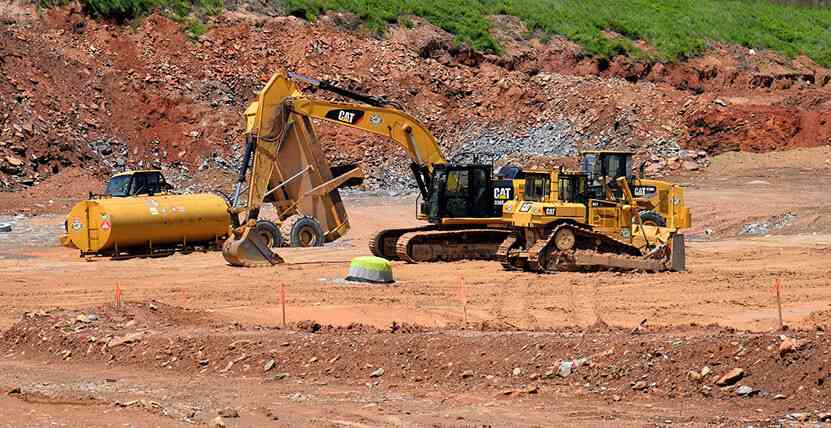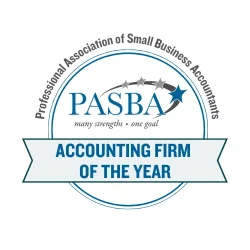The California business property tax is a critical source of revenue for local governments, and it’s something that all business owners need to be aware of. This tax applies to real and personal properties a business holds, such as any buildings, equipment, machinery, furniture, and vehicles.
If your business owns any such property worth more than $400, then you’ll be required to file a 571-L (Business Property Statement) to your respective county every year to report what personal property you own.
The business property tax can have a significant financial impact on your organization, so understanding how the taxes are calculated and which exemptions may be available is essential to planning ahead and minimizing your liability.
What’s Included in The California Business Property Tax?
The business property tax is often the chief source of municipal income in California. It is assessed based on the value of a company’s assets. It generates revenue to fund vital government services at local and state levels, such as schools, public safety, infrastructure maintenance, and more.
Under the California Constitution, all tangible property is taxable. This means that the California business property tax applies to all commercial or industrial properties in California. The tax is based on the assessed value of these assets and may be payable at the local, county, or state level. The following are some examples of real properties that may be subject to the tax:
- Land
- Buildings
- Fixtures
- Structures
- Fences
- Mines
- Quarries
- Standing timber
Additionally, tangible personal property with a combined cost of at least $100,000 is taxable under California’s business property tax. This includes any of the following:
- Office furniture
- Equipment
- Machinery
- Leasehold improvements
- Vehicles used for business purposes
How Is It Calculated?
The California business property tax is calculated based on the assessed value of the property, as determined by local assessors. Currently, the state’s business property tax is 1% of the assessed value of all taxable property. For example, if a business owns a building with an assessed value of $500,000, its annual property tax would be $5,000 ($500,000 x 1%).
However, this amount may be increased by any bonded indebtedness voted in by the taxpayers. Checking with your county’s treasurer or assessor’s office is vital to ensure you have the correct figures when preparing your business property tax return.
Regarding the assessed value, it’s important to note that Proposition 13 restricts it from increasing more than 2% per year. This is beneficial for business owners as it limits the amount of tax they will pay over a period of time. The following are factors that could affect the assessed value of your real business property:
Property’s Size
It shouldn’t be a surprise that your property’s size directly impacts its value. The bigger your property is, the greater its assessed value will be.
Location
The location of your property may affect its assessed value. Properties in areas with high demand or greater potential for development may have a higher assessed value — and thus a higher tax burden — than those in less desirable areas.
Improvements Made To The Property
Any improvements or renovations made to the property may increase its assessed value and thus the amount of taxes you will owe.
Who Pays Business Property Tax In California?
If you own a business that owns or leases real or personal property in California, then you are required to pay the business property tax. This is true even if your business does not have any employees or does not generate revenue. The following are essential things that you should know about paying business property tax in California:
When Is It Due?
Annual property tax returns are due on April 1; however, they won’t be considered late until May 7. Both taxable personal and real property that you’ve claimed will be assessed on January 1. However, there are different due dates for both. You’ll need to pay the real property taxes in two equal installments.
The first must be paid by November 1 of the current year, and the second must be paid by February 1 of the following year. If you don’t pay the first installment by December 10 of the current year or the second installment by April 10 of the following year, you’ll be charged a 10% penalty for being delinquent.
Unlike your real property taxes, you’ll be required to pay your personal property taxes in one installment by January 1. You’ll have until August 31 of the current year before your taxes become delinquent and you’re subject to a 10% penalty.
How Is It Paid?
The business property tax in California can be paid by mail, online, or in person at the county assessor’s office. If you cannot pay the full amount of taxes due on time, you can contact your county assessor’s office to discuss installment plans or other options.
Exemptions From Business Property Tax In California
In some cases, qualified businesses or organizations may be exempt from the business property tax in California.
This includes religious organizations, public hospitals, educational institutions, and charitable organizations. To qualify for an exemption, your organization must meet certain criteria outlined by the state. You may also qualify for partial exemptions, depending on the type of property being taxed and the amount of business property tax paid.
Examples Of Exemptions
The following are more specific examples of exemptions from the California business property tax:
- Being a nonprofit organization: Nonprofit organizations, such as religious organizations, are exempt from paying the business property tax in California. To qualify for an exemption, the organization must meet all of the criteria outlined by the state that includes being incorporated as a 501(c)(3) as well as meeting certain public benefit requirements.
- Owning low-income housing: Certain low-income housing projects may be eligible for a partial or full exemption from the business property tax in California. Eligibility depends on the number of housing units offered and the tenants’ income.
- Being a veterans’ organization: Veterans’ organizations may be eligible for exemptions from the business property tax in California. To qualify, the organization must have been established and maintained primarily to benefit veterans and their families.
- Owning land for educational purposes: Land owned by an educational institution may be exempt from the business property tax in California.
- Ownership of solar or wind energy devices: Solar and wind energy devices used for residential, commercial, or industrial purposes may be exempt from the business property tax in California.
- Others: Other exemptions may be available, depending on the type of property that’s being taxed as well as the taxpayer’s specific circumstances. For instance, some properties may be exempt if used for agricultural purposes.
Check with your local assessor for more information about exemptions from the business property tax in California.
Why Check Your Eligibility?
These exemptions can provide significant tax relief for qualifying businesses and organizations, allowing them to allocate more resources toward their operations and goals. Check your eligibility for an exemption from the California business property tax to ensure you are not overpaying on taxes each year.
Additionally, if you have any questions or concerns about the exemptions available, you should speak to one of our advisors at J.R. Martin & Associates about our business expenses and deductions services.
How To Apply For An Exemption
If you believe your property is eligible for an exemption from the business property tax in California, you must submit an application and supporting documents to your county assessor’s office.
The application must include information about the business or organization, including its name, date of incorporation, and purpose. You may also need to submit additional documents, such as financial statements or tax returns.
It is important to note that these exemptions may not apply to all types of business property taxes. For instance, some properties may be exempt from the real property tax but not personal property tax.
Therefore, it is essential to confirm with your local assessor’s office which taxes you may be exempt from in your specific situation. Our advisors at J.R. Martin & Associates can also help you determine which taxes may be exempt and help you navigate the application process.
Tips To Reduce Your Business Property Tax in California
Being proactive and informed about the property tax process can significantly benefit your business in reducing its tax burden. You can do this by:
- Keeping up-to-date records: Maintaining records of any improvements made to the property and being prepared to provide documentation for any exemptions that may be available can help you save time and money when filing your taxes each year.
- Performing regular property assessments: Having a professional assessor review your property will help to ensure that the assessed value is accurate, resulting in more precise taxation and potential savings for your business. This will also prevent you from overpaying on taxes.
- Take advantage of any available exemptions or deductions: These can significantly reduce the taxes owed and help your business save money in the long run.
- Stay current on tax codes and laws: Changes in tax codes and laws may affect your business. This includes keeping track of any new or amended legislation that could potentially impact the taxes you owe. Staying informed can help ensure that your business is properly preparing for and filing its taxes, ultimately leading to greater savings.
It’s important to note that these exemptions and deductions may differ from county to county, so speaking with a knowledgeable professional can help ensure you are taking full advantage of any available opportunities.
Additionally, this information should not be taken as legal or financial advice. Every business’s tax situation is unique, and it is best to consult a professional for individualized guidance when filing taxes.
J.R. Martin & Associates provides deferred income tax services, so be sure to contact us if you have any questions or need any assistance navigating the property tax process.
Keeping this in mind, the following are essential tips for filing business property taxes in California:
1. Know The Assessment Process
It is important to understand the assessment process to make sure your property is accurately assessed. In California, local assessors determine the value of a property based on factors that include the size and condition of your property, where it’s located, and any improvements made.
Knowing how your business’s property is being valued can help you make decisions about tax planning strategies and stay current on any changes or exemptions that could benefit your business.
2. Appeal Your Assessment
If you feel your property has been assessed at a higher value than is warranted, you can appeal the assessment. This involves gathering evidence and making a case to your local assessor’s office.
Depending on the appeal’s outcome, you could receive a tax reduction or refund for any overpaid taxes. It is important to note that appeals have strict deadlines, so it is best to act quickly if you believe your assessment may be incorrect.
3. Utilize Exemptions And Deductions
Certain businesses may qualify for tax exemptions or deductions, which can provide significant tax relief. These exemptions and deductions vary from county to county, so it is vital to research any applicable exemptions or deductions that your business might be eligible for.
Taking advantage of available exemptions and deductions can help reduce the amount of taxes you owe each year, allowing you to allocate more resources towards other expenses and goals.
4. Keep Accurate Records And Documents
Keeping accurate records and documents is critical for reducing your business property tax in California. This includes properly documenting any expenses, income, and improvements made to the property throughout the year.
This will help you ensure that you are not overpaying on taxes and provide evidence if you decide to appeal your assessment. In addition, keeping accurate records will help to ensure that your business is correctly preparing for and filing its taxes each year.
5. Hire A Professional
Navigating the property tax system in California can be complicated and time-consuming. Consider hiring a professional, such as a tax consultant or lawyer, to assist you with reducing your business’s property tax burden.
They can provide advice on how to reduce taxes owed, help you navigate the appeals process if necessary, and advise on any exemptions or deductions that may help your business save money.
Investing in our professional tax preparation services can be a great way to ensure that your business is properly filing its taxes and taking full advantage of any available opportunities for tax savings.
6. Stay Up To Date On Laws And Regulations
Staying up to date on any laws and regulations related to property taxes that may affect your business is critical. Property tax laws are constantly changing, so you need to be aware of any new developments that could impact the taxes owed by your business.
Keeping track of changes in tax codes and laws can help you ensure that you take full advantage of any tax savings opportunities, while also staying compliant with regulations.
Benefit From A Proactive Business Property Tax Strategy
It is essential to have an experienced team of CPAs working with you to strategize and plan your business property taxes. This proactive approach can help optimize your financial situation and improve profitability for your business.
Working with a tax expert in California can help you take advantage of available exemptions, deductions, and other opportunities to reduce the amount of taxes owed each year.
Additionally, their expertise can help you navigate the appeals process if necessary and keep up with any changes in tax codes.
J.R. Martin & Associates is a full-service accounting firm that provides comprehensive tax strategies services, ranging from tax preparation and review of returns to estate planning, IRS representation, retirement plan advice, and more.
Our experienced advisors are dedicated to helping businesses maximize their financial performance by providing strategic advice on taxes owed and available options for reducing them.
Let us help you navigate the complex world of business property taxes. Contact us today to schedule a consultation.



